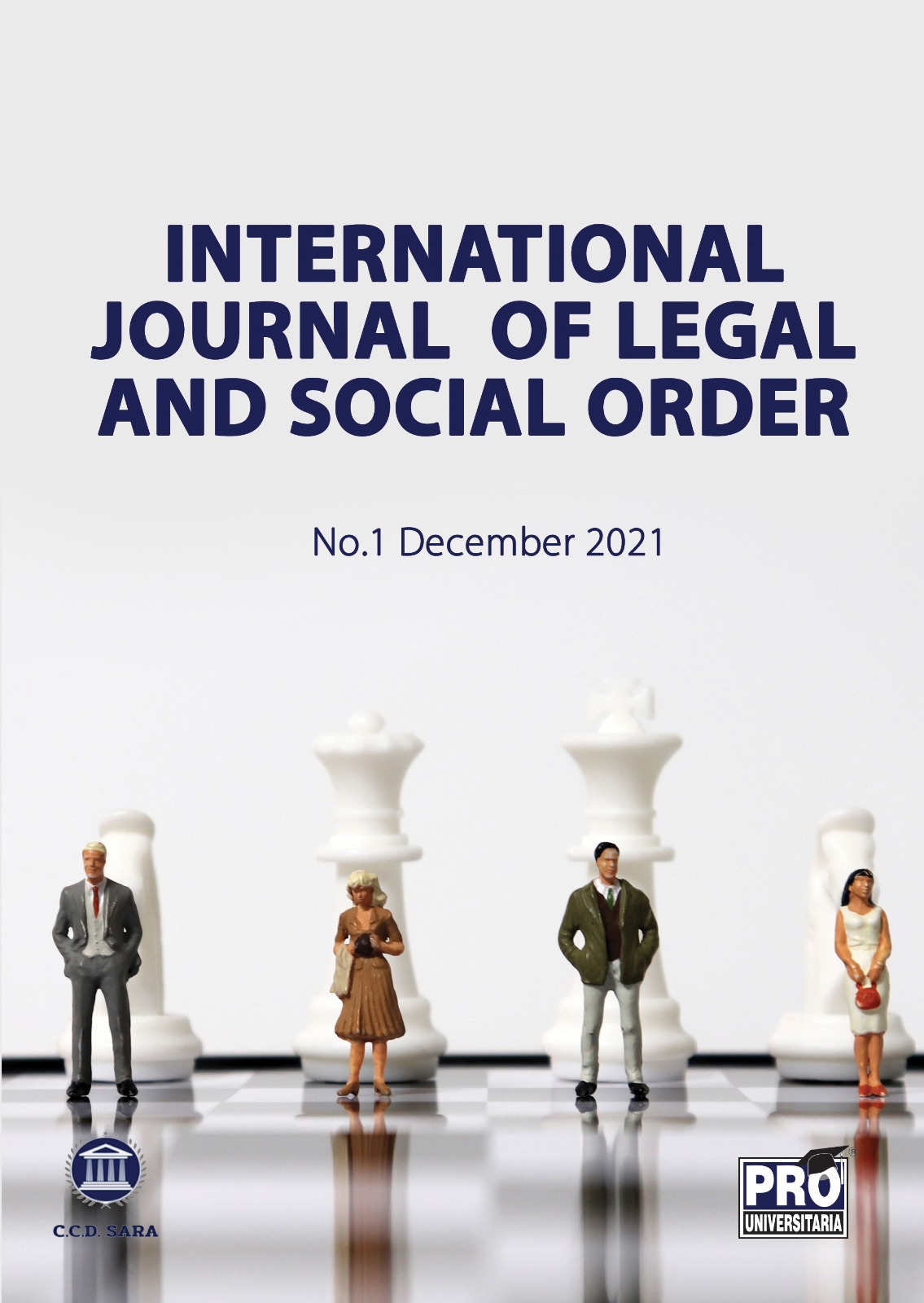QUALITY OF LIFE IN THE PANDEMIC CONTEXT
DOI:
https://doi.org/10.55516/ijlso.v1i1.36Keywords:
Quality of life, personality factors, self-esteem, emotional stabilityAbstract
The study aims to highlight whether there are statistically significant differences between people with children and those without children in terms of self-esteem and emotional stability. Overall, this research aims to determine whether there are differences between categories of people in terms of the impact that the Covid-19 pandemic has had on their quality of life. The questionnaires on which this study was based are Quality of Life Inventory (QOLI) and Five Factor Personality Inventory (FFPI) and were applied to a sample of 162 adults.
References
Chaturvedi, M., Chander, R. (2010), Development of emotional stability scale. Ind Psychiatry J. 2010 Jan-Jun; 19(1): 37–40. doi: 10.4103/0972-6748.77634.
Dafinoi, I., Boncu, S. (2014). Psihologie sociala clinică. București, Editura Polirom.
Frisch, M. (2014). Quality of Life Inventory. București, OS România.
Frisch, M.B. (1992). Use of the Quality of Life Inventory in problem assessment and treatment planning for cognitive therapy of depression. în Freeman A. & Dattilio F.M. (editori). Comprehensive Casebook of Cognitive Therapy. New York: Plenum.
Hendriks, A.A.J., Hofstee, W.K.B., & De Raad, B. (1999). The Five-Factor Personality Inventory (FFPI). Personality and Individual Differences, 27(2).
Institutul de Cercetare a Calității Vieții. (2018). Raport Calitatea vieții, resursă electronică online la: http://www.iccv.ro/wp-content/uploads/2018/03/ Raport-Calitatea-Vietii.pdf
Khan A.G., Kamruzzaman, N.R., Monowar M., Aftab U., (2021). Quality of life in the COVID-19 outbreak: influence of psychological distress, government strategies, social distancing, and emotional recovery. În Heliyon, Volume 7, Issue 3, 2021.
Lupu, D.A., 2019. Dezvoltarea încrederii în sine. Ghid practic. Cluj, Editura Presa Universitară Clujeană.
Miron M.-I., Sulea C., Sârbescu P. (2011). Satisfacția față de viață și spiritualitatea: implicații pentru starea psihologică de bine a individului. Romanian Journal of Applied Psychology, 2011, Vol. 13, No. 2, 50-55.
Oates, G. (1997). Self-Esteem Enhancement Through Fertility? Socioeconomic Prospects, Gender, and Mutual Influence. American Sociological Review, 62(6), 965-973. doi:10.2307/2657350.
OMS. (1997). WHOQOL, Measurig Quality of Life, resursă electronică accesată online mai 2021 la: https://www.who.int/mental_health/media/68.pdf.
Pop, C. (2008). Ingredientele unei vieți bune și ale unui standard decent de viață, în România și în Europa, Calitatea Vieții, Revista de politici sociale, nr. 3-4.
Umberson, D., & Gove, W. R. (1989). Parenthood and Psychological Well-Being. Journal of Family Issues, 10(4), 440–462. doi:10.1177/019251389010004002
van Scheppingen, M.A., Jackson, J.J., Specht, J., Hutteman, R., Denissen, J.J.A., & Bleidorn, W. (2016). Personality Trait Development During the Transition to Parenthood. Social Psychological and Personality Science, 7(5), 452–462. doi:10.1177/194855061 6630032
Zeigler-Hill, V. (2013). The importance of self-esteem. In V. Zeigler-Hill (Ed.), Current issues in social psychology. Self-esteem (p. 1–20). Psychology Press. https://doi.org/10.4324/9780 203587874


